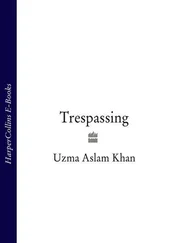The girgiti. The constellation of six stars she had looked for every morning since she could remember, till now, when it became so hard to get herself out of bed. Now she carried a rock around her neck, a rock even the legendary Maryam Zamani would not have known how to remove. So her husband did not wake her up; it would mean waking the rock. He took Jumanah with him without a sound, as he led the animals into the forest and returned them later in the morning, at which point he said that if she felt able, she could take them back to the forest at noon, for the second feed.
The rock lodged in her throat. It did not matter how frequently she swallowed it down. It kept growing, prickly and green, like guilt.
“He let her go in the boat,” she said, returning Namasha’s stare. She was suddenly livid with this animal for stirring the fury she had been holding inside. Now it threatened to spread through her veins faster than a snake bite, just as she struggled to find a routine again, by taking the horses into the forest for the second feed! “Do you think I could have stopped him?” She heard her voice give. “I tried. Do you hear me? I tried !” She stamped her foot, and the filly backed away. The mare stood her ground. “Who would listen to a wife over a flock of stupid foreigners? He said we could not refuse them. He said they were guests! They were not guests. They were thieves!”
Still the evil Namasha kept staring.
“What would you have done?”
The mare turned and walked herself indignantly into the forest.
“You better stay where you should stay!” Maryam shouted. “We are not going to pay any fines for a conceited old hag like you!”
The filly followed her mother, waving her thick brown tail like a taunt.
For a long time, Maryam watched them go.
She finally glanced again at the hut. It was good Ghafoor was inside, even if she was not ready to see him.
Early that morning, two policemen had torn through their hut.
She had been lying in bed listening to her husband move on one leg while Jumanah raced after him on two. He would take her to the forest that day, he said. She grunted in gratitude, though it was strange to feel gratitude toward a man who had given her older daughter away. It required all the effort in the world to sit up in bed. She sat up for her son, not her husband. Younis would need breakfast before he left for the shop. He was standing before an open curtain, the way Kiran had done each morning, gazing up at the sky. The light that poured through was a violet bleeding slowly to gold. Loi Tara would be there, high above his wide shoulders, and perhaps the six stars of girgiti too, in which case, the second from the bottom would be flickering the brightest. It was always the last to leave for the day.
Then came the boots and the police shoving Younis inside and the curtain pulling shut.
A bomber had blown himself up in the Balakot police station, they said, killing four policemen, putting four others in hospital, and leaving the rest in a rage. That last detail she found redundant. They kicked the stove and the bed where she still sat, her hair a mess, she had not braided it yet, and made Jumanah cry. They broke the teacups. “We will find him!” they declared. They took Younis by the ear and pulled him and shook him. “He is your friend, isn’t he? Where is he?”
She watched as her son cried for the second time this year, first when Kiran was buried, and now, as he trembled in their grip. Only when a trickle of urine stained his shalwar did they release him, laughing. Then they sat down for tea. Then they demanded teacups. Then they demanded eggs.
She would not let Younis out of the house alone so Suleiman went to get the eggs and borrow teacups while the men stared at her. She could not fix her hair while they watched so she kept her hands at her side, folding her fingers. Her shawl was very far away. They asked questions that had nothing to do with the bomber. What was a woman from a family like hers, even if it was only a Gujjar family, doing with a man like him? He could not even walk. What else could he not do? How had he managed to have three children? Where was the third? Oh yes, they had heard. And they were very sorry, but not as sorry as they were to find her with a man like him. It was only a girl, after all, and she still had her son. A very fine boy indeed. He clearly took after her. But why only one son? She was still young or — had her husband not noticed? Did he need them to show him? They delivered their threats to her chest and neck and back again to her chest, grinning, while Younis seethed and Jumanah howled. She had slept in a kameez too thin because it was so, so hot and the rain was coming yet it did not come.
Suleiman returned and she made breakfast.
While they ate the buffaloes lowed in pain, their udders swelling like her shame, but she did not dare step outside to relieve them. The family of four sat in a straight line on the dirt floor — Younis, Jumanah, Maryam, and Suleiman — watching the policemen sit crosslegged on their rope bed with their boots on. They dug those boots deep into the bedding and into the weave of the rope. When the meal was finally finished, the men stood up, plunged their hands in the drinking water in the clay pot, and, still standing inside the hut, pissed against the curtain. “Remember, we will find him.” Then they smashed the borrowed teacups. Then they left.
She scrubbed clean each thread of the curtain and each string of the bed till her knuckles bled and when she put them to her lips the salt was soothing, she wanted no one to disturb her, no one at all.
Now, as she watched her horses disappear deep into the forest, she was glad Ghafoor was waiting for her inside. He would not stand by passively while policemen destroyed her home.
The time he went away, when he left her the red cloth, was a few days after the villa of the head inspector of the forest department had been set ablaze. It was quite possible that this was when the legend of Ghafoor had first begun to take shape, though it was equally possible that it had always been taking shape, from the very first time she saw him, but she never noticed, because she had been too busy watching his fingers play the flute and her taste buds.
The inspector had fined them for grazing on prohibited land, and this time, it was not about a sheep nibbling two stalks of a ginger plant, but an entire flock ripping apart an entire field. It was a lie. The field had been rotten to begin with, and they had been nowhere near it. (The field had been rotten because the land was easily destroyed in the floods the previous year. The land was easily destroyed because it had no trees. It had no trees because the same inspector grew fat each time the forest was torn down. There was always a beginning, hard as it was to keep track of sometimes.) As punishment, the herders were told to pay four thousand rupees, as well as a weekly supply of milk, curd, butter, and ghee for an indefinite period of time. Sugar upon demand.
There were ways of registering resentment.
The night the villa burned, the inspector had been in the kitchen in the front of the house, drinking whiskey. The fire had started at the back, in his bedroom. The wall was made of wood; a walnut tree knocked against the wall. His wife was in the bedroom, his children in the room next to theirs. By the time the fire reached the kitchen, the inspector was intoxicated, though not enough to forget about himself. He tumbled out the kitchen window, drunken head first, and only later, remembered his family. He yelled at his servants — who were not in their quarters; those questions would come later — to go back inside the house to save them. The servants were able to retrieve the children but his wife was lost in a fire hotter than hell, and they would endure the hell on earth the inspector would put them through rather than risk the one in the bedroom.
Читать дальше












